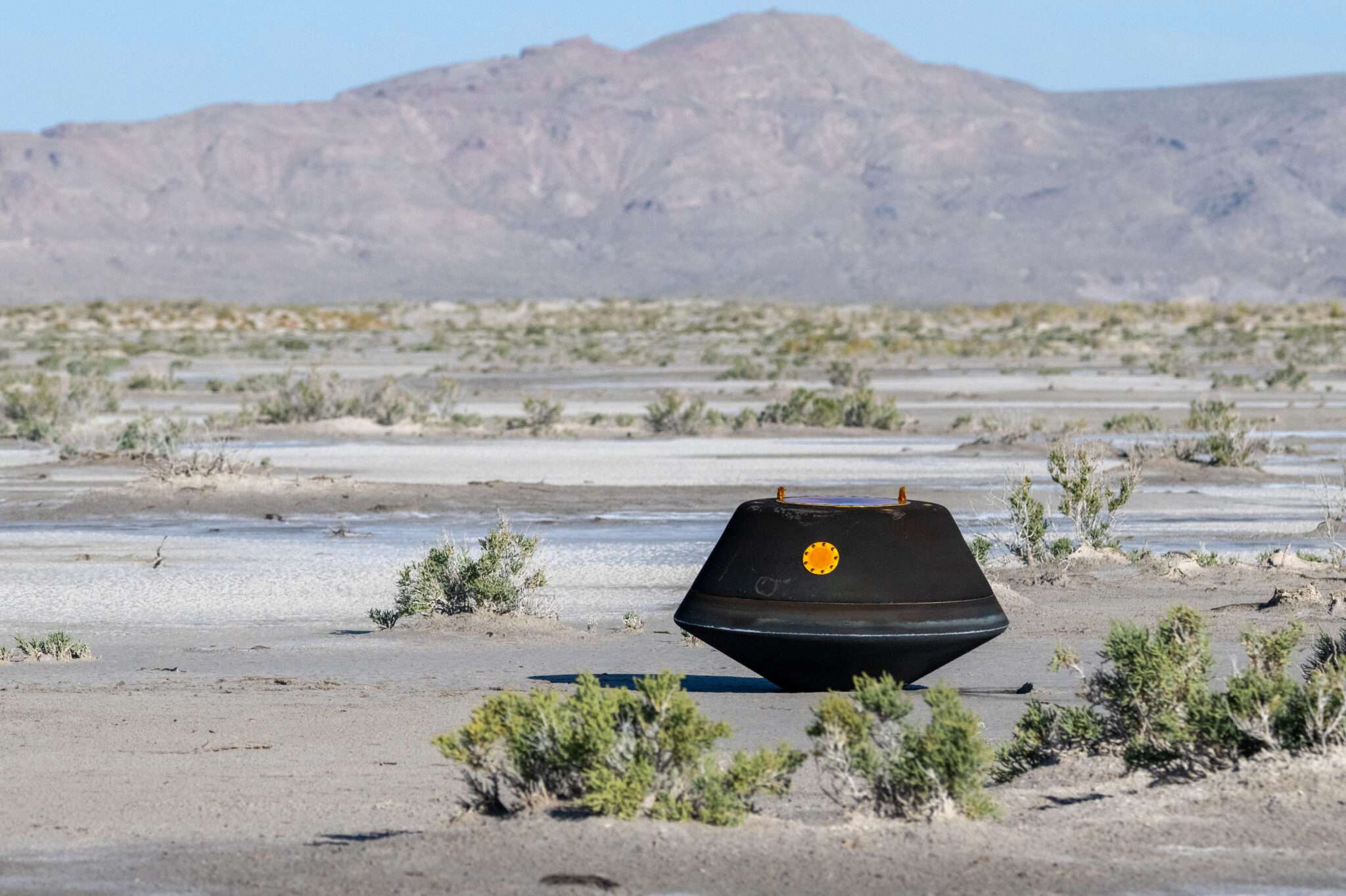NASA May Have Just Cracked the Code for Replacing Lithium in Batteries: 'Double or even triple the energy'
Inside the battery, sulfur and selenium cells stacked directly on top of one another without casings allow for greater weight savings

In huge spacefaring news, NASA has its hands on a capsule containing about half a pound of material taken from a large asteroid called Bennu.
The first extraterrestrial soil sample brought back by Americans since the Apollo Missions was accomplished as part of the years-long OSIRIS-REx Mission, the first-ever asteroid sample-and-return mission NASA has undertaken.
Touching down in a DoD Test Range in Utah at 10:52 a.m. EDT on Sunday, the OSIRIS-REx capsule represents the culmination of 7 years of hard work that started when a small spacecraft was launched in 2016, remotely directed to the asteroid Bennu where it arrived and sought a safe landing area in 2019, collected a sample in October of 2020, and then headed for home in 2021.
The Bennu sample-an estimated 8.8 ounces, or 250 grams-was transported in its unopened canister by aircraft to NASA's Johnson Space Center in Houston on Monday.
Curation scientists there will disassemble the canister, extract and weigh the sample, create an inventory of the rocks and dust, and, over time, distribute pieces of Bennu to scientists worldwide.
Moving as fast as possible to get the canister under a "nitrogen purge," as scientists call it, was one of the OSIRIS-REx team's most critical tasks yesterday.
Nitrogen is a gas that doesn't interact with most other chemicals, and a continuous flow of it into the sample container inside the capsule will keep out earthly contaminants to leave the sample pure for scientific analyses.
"For us, this was the World Series, ninth inning, bases-loaded moment, and this team knocked it out of the park," said Rich Burns, project manager for OSIRIS-REx at NASA's Goddard Space Flight Center. "The whole team had butterflies today, but that's the focused anticipation of a critical event by a well-prepared team."
The returned samples collected from Bennu will help scientists worldwide make discoveries to better understand planet formation and the origin of organics and water that led to life on Earth, as well as benefit all of humanity by learning more about potentially hazardous asteroids.
WATCH a NASA explainer video below… (Note: WS has no affiliation with any ads displayed)
SHARE Another Small Step For Man But Giant Leap For Mankind…
Be the first to comment